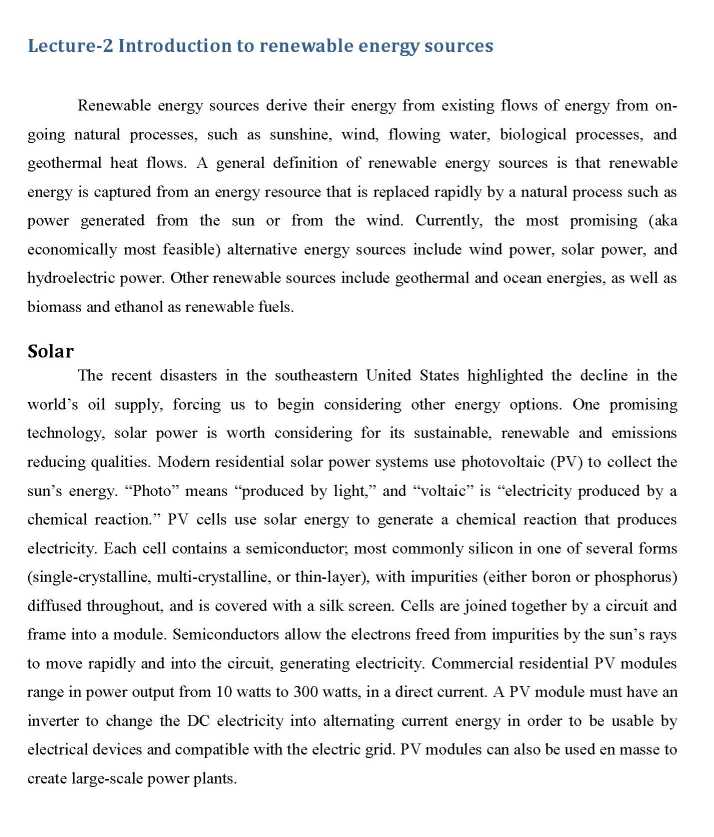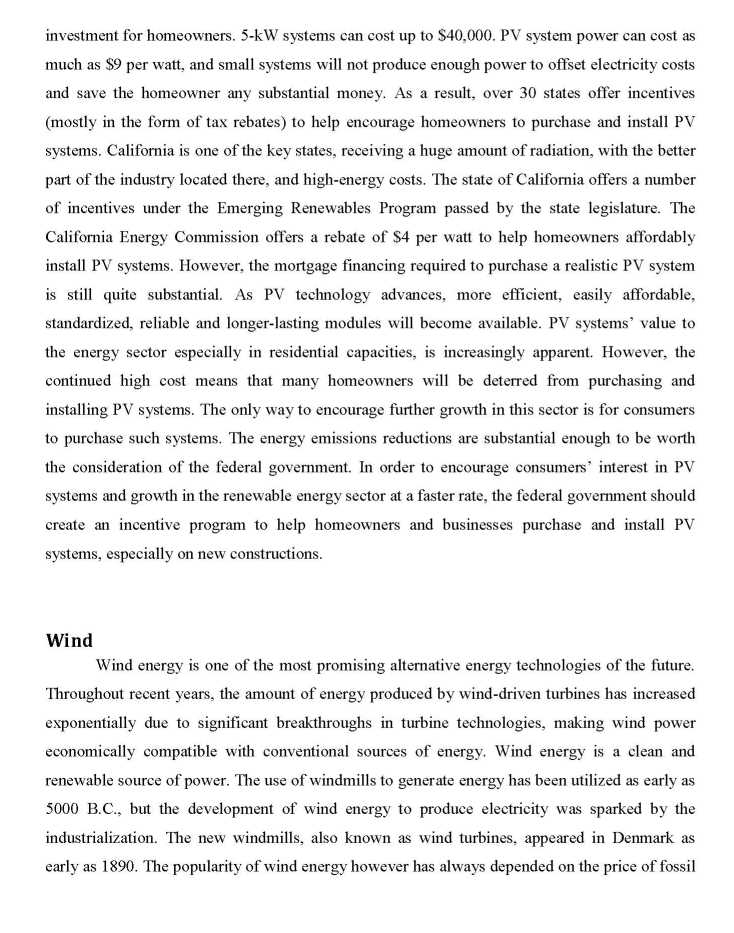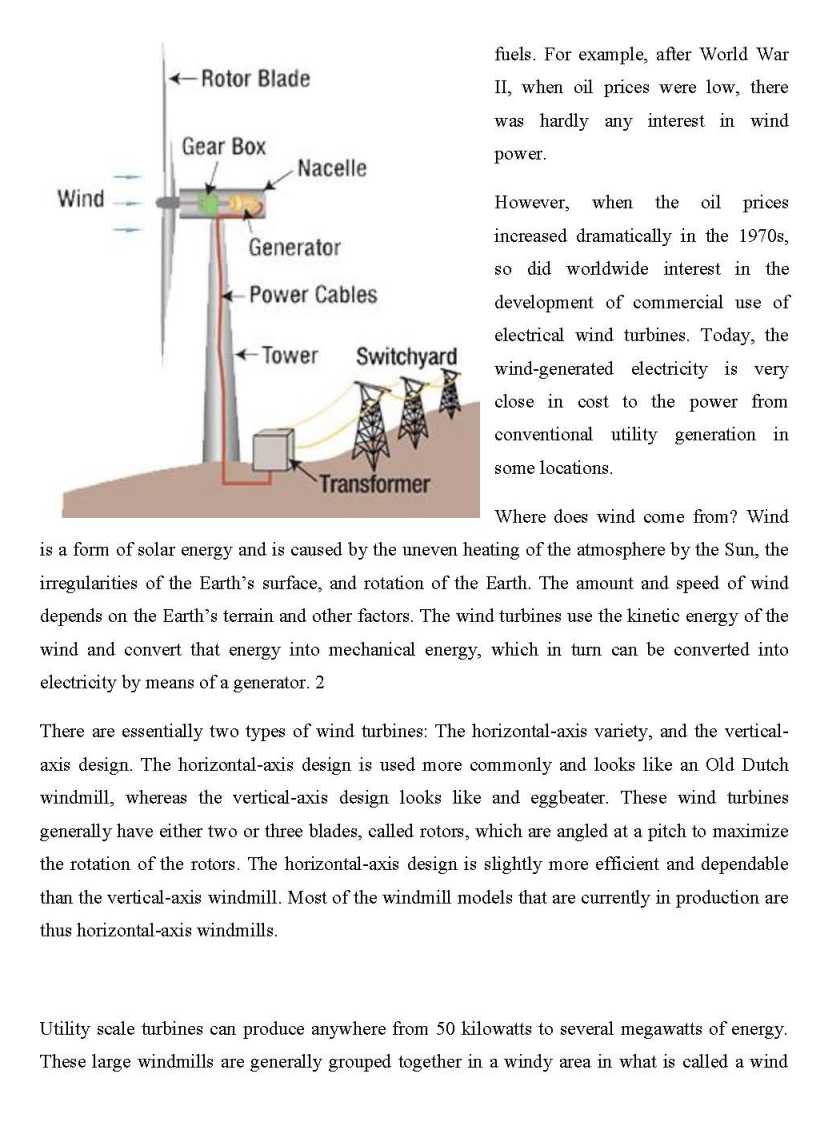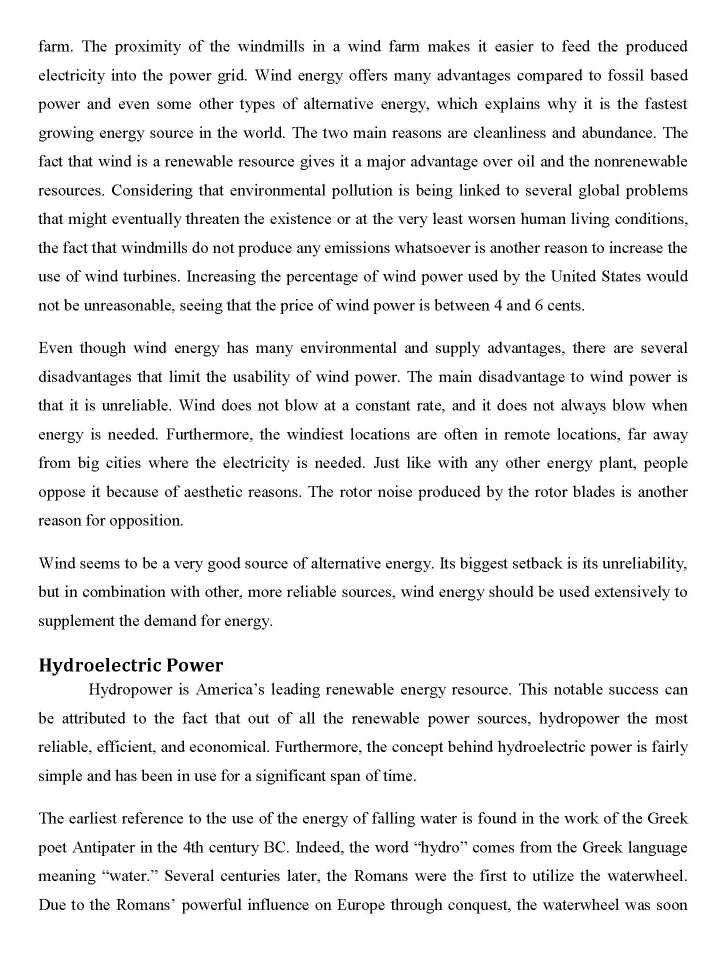|
#3
29th February 2016, 07:57 AM
| |||
| |||
| Re: TNAU Lecture Notes
As you have asked about the TNAU Lecture notes for Renewable Energy, check below for the information Lecture-2 Introduction to renewable energy sources Renewable energy sources derive their energy from existing flows of energy from on- going natural processes, such as sunshine, wind, flowing water, biological processes, and geothermal heat flows. A general definition of renewable energy sources is that renewable energy is captured from an energy resource that is replaced rapidly by a natural process such as power generated from the sun or from the wind. Currently, the most promising (aka economically most feasible) alternative energy sources include wind power, solar power, and hydroelectric ower. Other renewable sources include geothermal and ocean energies, as well as biomass and ethanol as renewable fuels. Solar The recent disasters in the southeastern United States highlighted the decline in the world’s oil supply, forcing us to begin considering other energy options. One promising technology, solar power is worth considering for its sustainable, renewable and emissions reducing qualities. Modern residential solar power systems use photovoltaic (PV) tocollect the sun’s energy. “Photo” means “produced by light,” and “voltaic” is “electricity produced by a chemical reaction.” PV cells use solar energy to generate a chemical reaction that produces electricity. Each cell contains a semiconductor; most commonly silicon in one of several forms (single-crystalline, multi-crystalline, or thin-layer), with impurities (either boron or phosphorus) diffused throughut, and is covered with a silk screen. Cells are joined together by a circuit and frame into a module. Semiconductors allow the electrons freed from impurities by the sun’s rays to move rapidly and into the circuit, generating electricity. Commercial residential PV modules range in power output from 10 watts to 300 watts, in a direct current. A PV module must have an inverter to change the DC electricity into alternating current energy in order to be usable by electrical devices and compatible with the electric grid. PV modules can also be used en masse to create large-scale power plants. TNAU Lecture Notes on Renewable Energy      For more details, you can refer to the attached file |